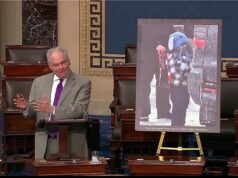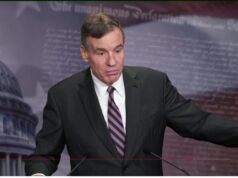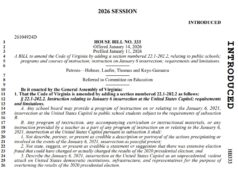from Dictionary.reference.com:
1. swift and intense force: the violence of a storm.
2. rough or injurious physical force, action, or treatment: to die by violence.
3. an unjust or unwarranted exertion of force or power, as against rights or laws: to take over a government by violence.
4. a violent act or proceeding.
5. rough or immoderate vehemence, as of feeling or language: the violence of his hatred.
6. damage through distortion or unwarranted alteration: to do editorial violence to a text.
I have been thinking about this word for several days. So today let me non-violently meditate upon its meanings as I perceive them.
Perhaps it is that I worry too much, because it seems that he who screams the loudest gets the most attention, to wit, the so-called Tea Party movement.
Perhaps it is that I see that violence of language often serves as a precursor to and instigator of violence of action.
Perhaps it is because I see how as a society we glorify violence in many forms, especially in much of our obsession with sports.
Perhaps it is because the current President does not respond to violence of language with similar expressions, but rather with humor, ridicule, and wit that some accuse him of being weak or un-American.
Perhaps it is because some believe that if we perceive ourselves as “stronger” or “more powerful” it gives us the right to impose ourselves by force or the threat thereof.
Perhaps it is because some will quote Matthew 11:12, From the days of John the Baptist until now the kingdom of heaven suffers violence, and violent men take it by force,, while forgetting forgetting Matthew 5:3, Blessed are the poor in spirit, for theirs is the Kingdom of Heaven.
Perhaps it is because I remember the words attributed to Gandhi, An eye for an eye makes the whole world blind.
It is a Saturday morning, a time when often I am reflective. It is a day when yet again I will give up some of my freedom to tutor students who need extra help to prepare for the AP Government exam. It is also a day when we will celebrate the life and passing of Andrea “Froggy” Henderson, the art teacher who was with our school since its founding more than three decades ago and who just passed from cancer.
And like many days, it is a day when I pause to take stock, to reflect upon my own words and actions.
I had a brilliant mother who graduated from Hunter College High School at 14, Cornell at 18, and Columbia Law at 21. She was not physically imposing. Yet it is from her I learned the most about violence. Her command of language was often spectacular. It was her weapon of choice. She could skillfully disembowel a verbal opponent, as would a skilled swordsman, with seemingly little effort. It was not the violence of brute force, nonetheless it was violence. She used words. Others used other weapons, and I learned from an early age that the use of violence of one form often lead to escalations of other kinds of violence: my father, no dumy with his Cornell Phi Beta Kappa key, could not match her word for word but he could become very loud and shout down, or as occasionally happened when his younger child (me) demonstrated some of the verbal instincts of his spouse use his superior size and strength (at least until I turned 15) to strike back.
I am not physically imposing. When I was in peak shape I went about 178 pounds of pure muscle, as I graduated from boot camp at Parris Island at age 19. In later days I worked part time as a bouncer in a bar, learning to use body language rather than body size as a means of controlling the situation, along with an ability to move quickly, observation of others, and some of mother’s facility with words not to tear down the person but to defuse the situation. Still, I knew I was capable of violence beyond my appearance, both of the body and of the word. And perhaps I relied too much upon that knowledge?
My role in life has changed and developed as I have aged. I am 36 days away from my 64th birthday. I doubt many of my 10th graders would be intimidated by my out of shape appearance, although I can and do break up fights between students sometimes bigger and stronger than I am – it is the element of surprise that enables me to gain a temporary advantage that I can then use to begin to defuse the situation.
But violence is not always the solution. Perhaps my most famous occasion of breaking up a fight was between two girls, and there is for a male teacher real danger in attempting to grab one, for obvious reasons. So instead I dropped to all fours, started barking, snarling and growling – they were so surprised that they both jumped back and I was able to step in between.
For better or worse, I know how to use force, physical and verbal. I am too skilled in being violent, and not yet skilled enough in preventing it.
I am a product of the society in which I have lived for my than 6 decades.
Over time I have begun to learn that there are ways other than the path of violence – of thought, of word, of action.
Over time I have begun to try to walk those other paths in how I live, think, speak, and act.
It is only as I have done so that I have begun to learn truly how to teach. It is perhaps why I was not ready to take on the responsibility of instructing adolescents until near the end of my 5th decade. It is also why I am still learning how not to meet violence, actual or implied, with other violence, which is necessary if I am going to be able to reach my most difficult students. If one asks me what I know about teaching, part of my answer would include these words: I’m still learning what it means to be a teacher, as I am still learning what it means to be a human
being.
Part of that learning means learning from the experience and insight of others. For example, the first half of a prayer attributed to St. Francis (although it cannot be traced back in written more than a century):
Lord, make me an instrument of your peace;
where there is hatred, let me sow love;
where there is injury, pardon:
where there is doubt, faith ;
where there is despair, hope
where there is darkness, light
where there is sadness, joy
It does not say to meet violence with violence.
I acknowledge that force, of word and of action, is sometimes unavoidable. Here I think of the words of a Russian monk on Mount Athos during World War II, when he prayed that the less evil side might prevail. I turn back those words upon myself as a challenge, even as I acknowledge that merely to achieve a level of being less evil is not the point at which I wish my aspirations to cease. It is a necessary, but insufficient goal.
Meditation does not always need to lead to conclusions. This one will not. Sometimes the greatest product of a meditation is to arrive at questions which can guide further reflection.
Are the words that I offer at least the less violent of the choices I can make?
Can I achieve the goal I seek with less force, of word, deed, or implication?
If the goal I pursue requires violence of thought, word, or deed, is it a goal I should pursue?
How is what I do loving, respectful of the integrity of others?
Can others get through my stubbornness, my willfulness, without resorting to implied or actual violence? Do my words and actions lead or provoke others to unnecessary violence?
Violence – I think especially of the third of the definitions with which I began: an unjust or unwarranted exertion of force or power
and ask myself if I am too quick to justify the exertion of force and power?
This is my reflection. These are questions i will continue to consider.
What about you?
Peace.












